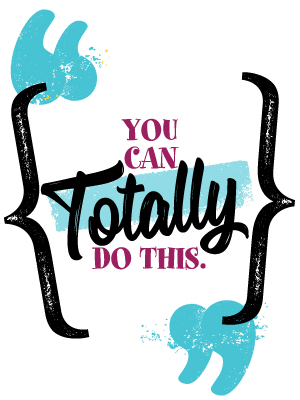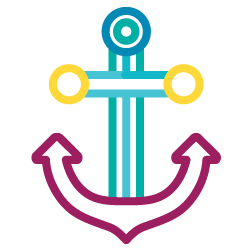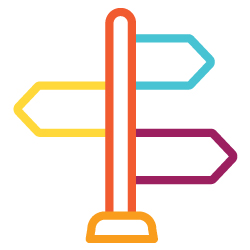
Education
Access to quality education is a strong predictor of future success affecting work, finances, and independence. A good education can mean the difference between a life of dependence and unemployment and a life of independence and productivity for people with disabilities.
Individuals with disabilities are capable of graduating high school fully prepared to tackle college or a career if they receive proper support along the way.
Practices | Strategies | Tools

Promising Practices
Individuals who enrolled in postsecondary education are more likely to find jobs that pay better wages compared to their peers who did not have any postsecondary education experiences.
Findings show that youth who exit vocational rehabilitation (VR) programs after receiving postsecondary education services reported higher weekly wages compared to their peers who did not receive any postsecondary education services.
Source: Post-Secondary Education and Training Preparation Toolkit from the National Technical Assistance Center on Transition: The Collaborative (NTACT:C).
Following are promising-practices to promote access to secondary education and training opportunities for people with disabilities.

Strategies
All states must provide a free, public education to all students with disabilities until graduation or at least to age 21. The Americans with Disabilities Act (ADA) safeguards both private and government-funded postsecondary programs must be accessible to individuals with disabilities; however, there are no direct services or funding for students with disabilities associated with the ADA.
Source: Post-Secondary Education and Training Preparation Toolkit from the National Technical Assistance Center on Transition: The Collaborative (NTACT:C).
Following are some strategies to help youth and families navigate education programs for people with disabilities.
Education Programs for People with Disabilities
Learn how to find local, state, and federal education programs and financial aid opportunities for people with disabilities.
- Your state department of education or your local school board are your best resources for telling you about nearby programs and answering questions about state educational rights laws for people with disabilities.
- An Individualized Education Program (IEP)is a plan developed by a child’s educators and parents to meet that child’s specific educational needs. It’s a foundational part of the Individuals with Disabilities Education Act (IDEA), which guarantees a free, appropriate public education to eligible children with disabilities.
- College-bound students with intellectual disabilities may be eligible for financial aid programs including Pell Grants and Federal Work-Study programs. The Office for Federal Student Aid has specific information on loans, grants, and scholarships, and how to apply.
- Contact the school you want to attend for additional information on special programs for people with disabilities.
Education Rights of People with Disabilities
Several federal laws protect the education rights of people with disabilities.
Section 504 and Title II Protect Education Rights
- Section 504 of the Rehabilitation Act of 1973 applies to businesses and groups that receive federal grants and loans.
- Title II of the Americans with Disabilities Actapplies to public schools, universities, and libraries.
- Both laws forbid discrimination against people with disabilities. They enforce the same basic standardsfor students attending public schools.
- Section 504 also protects students with “hidden” disabilities.
Individuals with Disabilities Education Act (IDEA)
IDEA applies to students in grades K-12.
- It guarantees their right to a free, appropriate public education.
- It calls for the creation of an Individualized Education Program (IEP)for each child.
Students with Disabilities at College or Technical Schools
- Students must notify their school and document their needs.
- Schools must provide tools and modifications to help students take part in class. For example, a school may offer course reading material in Braille.
Tools
Featured Resources
Post-Secondary Education and Training for Youth
Find out more about Pre-ETS requirements. Post-Secondary Education and Training for Youth with Disabilities

Post-Secondary Education and Training Preparation Toolkit
from the National Technical Assistance Center on Transition (NTACT). Download the Post-Secondary Education and Training Preparation Toolkit
State Postsecondary Education Plans and Guides
- Florida's Project 10 Guidance on Postsecondary Options – This website provides various guidance documents to assist students and families as they plan.
- Minnesota's Postsecondary Enrollment Options Reference Guide – This guide provides definitions, eligibility information, and planning documents for students and families as they plan.
- Next Steps New Hampshire - This website provides resources on college, apprenticeship, and trade school options and planning resources for New Hampshire students. It includes resources regarding the roles of vocational rehabilitation services, as well as tips on important skills to develop in preparing for postsecondary education and training.
- North Carolina's Postsecondary Education Programs for Students with Intellectual Disability – This document provides a list and basic information on the PSET programs in North Carolina for college-age students with intellectual disabilities.
- Wisconsin's Opening Doors to Postsecondary Education and Training Handbook – This handbook is intended to assist students and families in Wisconsin (and other states) with their plans for postsecondary learning.
Related Resources:
- Students with Disabilities Preparing for Postsecondary Education: Know Your Rights and Responsibilities from the U.S. Department of Education
